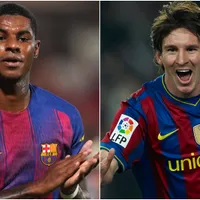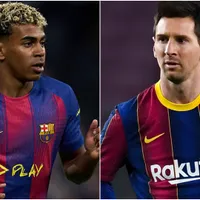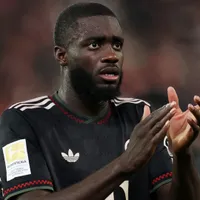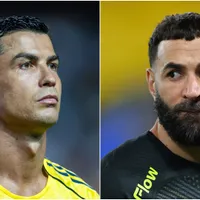
With eight days until the start of the Major League Soccer season and no sign of a deal between the players union and the league over a new Collective Bargaining Agreement, MLS clearly risks a work stoppage at the opening of its 20th season.
All reports indicate that the issue of free agency is going to be the stumbling block that could lead to a player strike with the union insisting this is a right they are ready to fight for and the league adamant that they won’t budge on the issue.
So does MLS face the prospect of a damaging long-term strike, possibly wiping out the 2015 season?
Probably not.
I don’t doubt the players when they talk about their determination to secure the same free agency rights that soccer players around the world enjoy. Nor do I think the union are bluffing when they raise the prospect of a strike.
In fact, having made free agency the over-riding issue in the CBA talks and threatened to strike, the union have almost boxed themselves in. Without achieving their goal, which is far from within reach, a strike is possibly the only way the union leadership can maintain their credibility with their members.
Perhaps it might have been wiser to have stated ‘serious progress towards free agency’ as the union’s goal, allowing for various kinds of deals to be struck, but as it is the free agency or bust approach, pushes the union towards a strike.
On the other side, MLS teams have no interest in allowing the kind of free agency that exists elsewhere in the world inside the tightly controlled and highly regulated structure of MLS.
Nor does the league really have too much to lose from a work stoppage where the cards appear to be stacked heavily in their favor.
While MLS clubs would surely prefer the season to start on time, there is no particular hurry for the league and judging by the apparent lack of intensity to the meetings with the union, there isn’t yet an impetus to get a deal done.
So a strike looks likely but the odds are stacked against the union – and that usually leads to a short dispute.
If a union is going to go long and hard in a dispute, it has to be ready to support its workers with a fighting fund – reports suggest the MLSPU has just $5 million in resources.
That isn’t going to cover the rosters of 20 MLS clubs for very long, meaning that an extended strike would involve players going without income. That happens in strikes of course but how long can players who have been earning less than $80,000 a year survive without income?
NBA players could afford their season being delayed due to a CBA dispute because most of them have a few million tucked away in the bank. Outside of the handful of Designated Players, there aren’t many millionaires in MLS.
Do the players want free agency so badly that they are willing to go months without income? Maybe the 27-year-old mid-to-low paid American MLS player will think it is worth the hardship for the longer term goal. But what about the many foreign players in MLS who probably don’t expect to be in the league for longer than a few seasons? Are they going to remain committed to a long strike?
The only way I can imagine the strike being an extended one is if the MLSPU were to get outside support from either FIFPRO, the international players union, or in solidarity from the other North American pro sports unions. But do foreign players outside of MLS care enough about tackling the single entity format to invest in a strike? Do NBA or NFL players care enough about their fellow athletes to back them in a meaningful way beyond words?
The union doesn’t appear to have much leverage at the moment and it is worth remembering the precedents within other North American sports leagues regarding free agency where strikes have not been the route to results.
The Major League Baseball Players Association was formed in 1885 but it was not until 1975 that they were finally able to achieve free agency and it was not won through a strike but through legal action.
Oscar Robertson’s antitrust suit won free agency for NBA players in 1976. Likewise NFL players only achieved full free agency in the early 1990’s, again through legal means.
If the past is a guide, free agency will eventually appear in MLS but probably after a series of court cases and so far there has been no indication of legal action from the MLSPU and a wariness to challenge the league’s single entity structure.
All of this doesn’t mean there won’t be a short strike, more of a dispute where the players miss the first few weeks of the season. I could be wrong, but I just don’t see the conditions in place for a long and bitter industrial dispute.
The whole situation is the price North American sports pay for rejecting the free market approach to compensation taken by soccer leagues across the world.
By creating ‘five year central plans’ and having officially recognized unions, the major pro leagues set themselves up for set-piece labor disputes every five years. It is almost inevitable that there will be conflicts.
In the rest of the world, players unions are more like professional associations rather than real labor movement bodies – because the free market systems leave it up to player and club to determine the value of the footballer. It is the agents who are the agitators over pay and conditions not the unions.
Both systems have their pros and cons. In Europe, massive wage inflation and excessive payment to agents infuriates fans but the open market allows clubs great freedom in creating their teams and gives players much more power over their own careers.
The North American model controls costs, restricts wage inflation, but limits the freedom of clubs to buy and sell players and weakens the players ability to generate the maximum revenue and limits their choices.
MLS is in the unique position of being part of the open, global, soccer market but operating on the more closed and controlled principles of the North American pro sports model.
This is inevitably going to create tension and conflicts but the hope expressed in some quarters that some ambitious owners would back the players demands because they want greater freedom over their own investments looks to have been misplaced.
The American businessmen who have invested in MLS are a different kind to the global rich who invest in European soccer.
It is well understood in Europe that a soccer club owner will probably lose money as he ‘invests’ in his team, buying players at huge cost. Hence the ‘Sugar Daddy’ title. What motivates most owners in the Premier League or La Liga is the boost to their reputation and public profile, the sense of importance that comes with heading a soccer club.
SEE ALSO: Watch the interview with Stefan Szymanski for an opposing viewpoint.
MLS owners, like American owners in other sports, want a return on their investment, they want to make profits out of their clubs – and at the moment most of them aren’t seeing that return anytime soon.
That partially explains the hardline they are likely to take in the upcoming dispute.
MLS’s economic structure will likely evolve in time, maybe even radically, and most likely as a result of legal or industrial action.
But it is difficult to see 2015 being the year in which a defining shift takes place. When the players do take the field this year, it is unlikely to be in an economic structure massively different to last season.
Editor’s note: Every Thursday, World Soccer Talk featured columnist Simon Evans shares his thoughts and opinions on world soccer topics. You can follow Simon on Twitter at @sgevans. Plus, read Simon’s other columns for World Soccer Talk.














